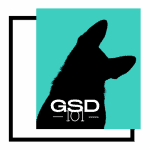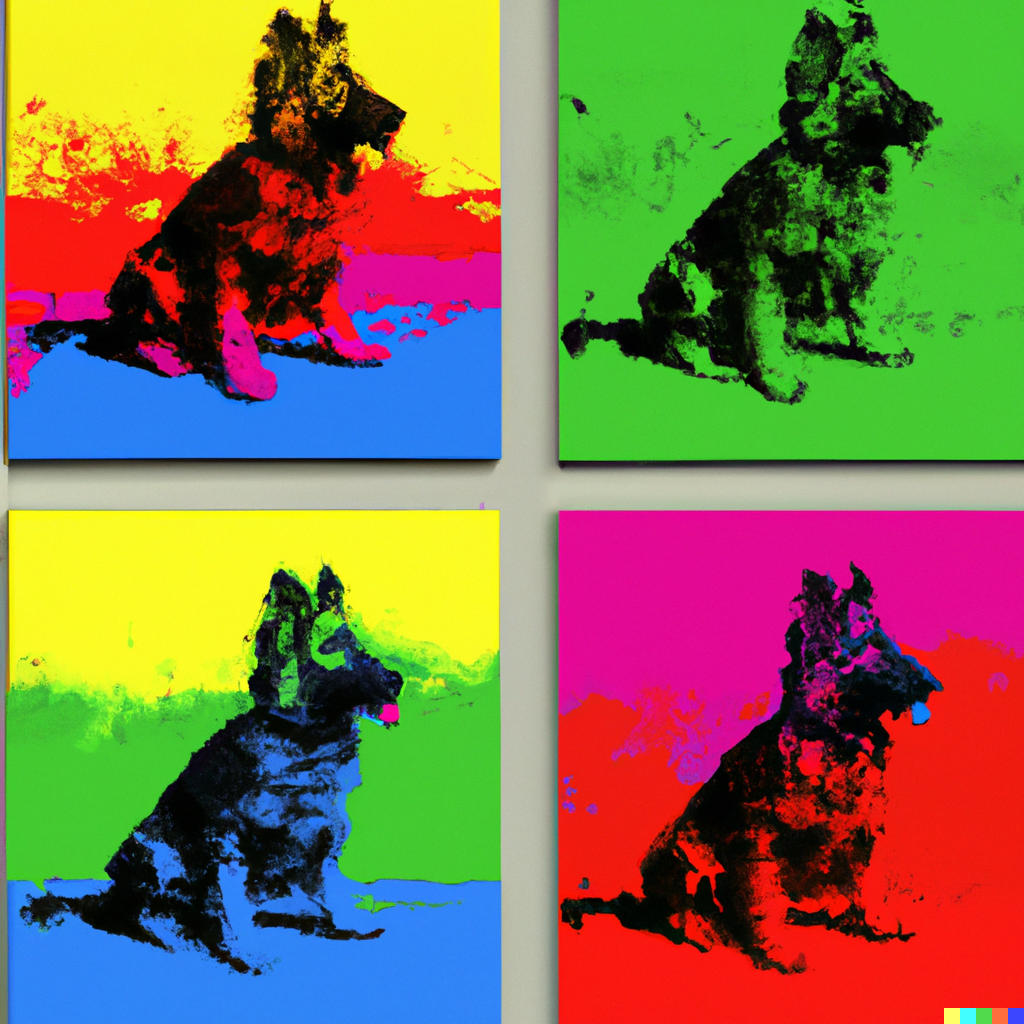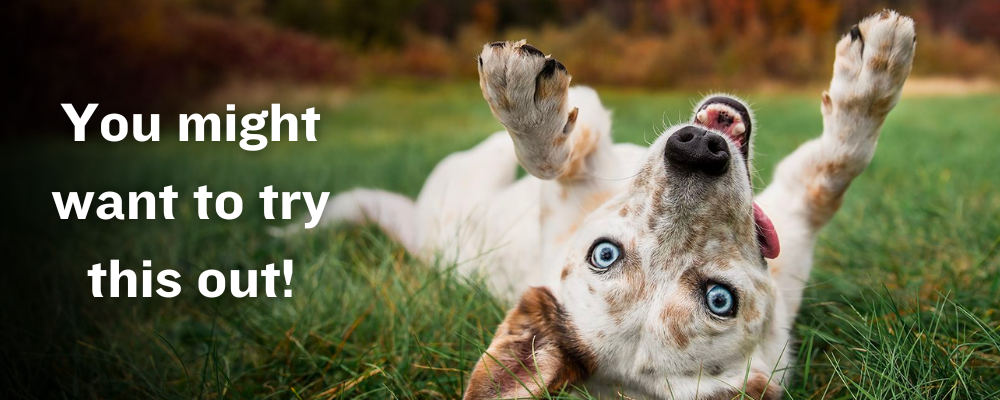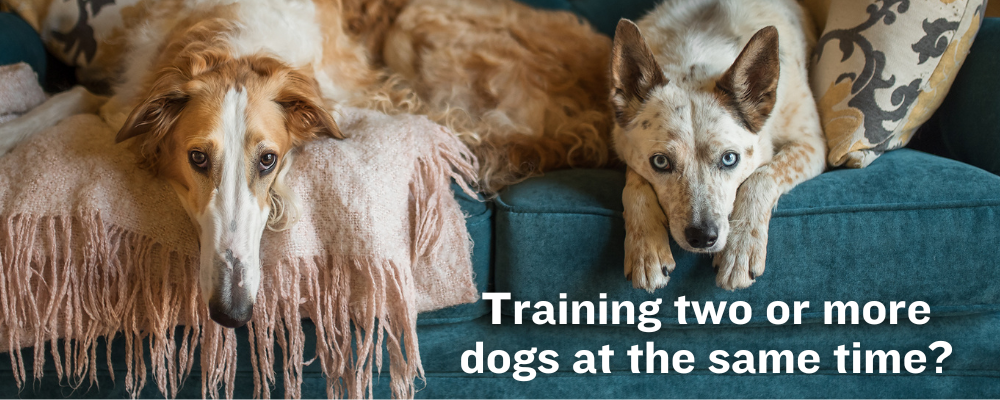Disclosure: This post contains affiliate links. We may earn a small commission if you decided to make a purchase, at no additional cost to you.
Welcome to the exciting world of German Shepherd puppy ownership!
Are you a first-time owner, ready to embark on an adventure with your new furry friend? Look no further. In this ultimate new owner’s manual, we will guide you through the process of bringing a German Shepherd puppy home, from selecting the perfect pup to training and caring for your new furry companion.
Whether you’re a first-time dog owner or a seasoned pro, this guide will give you all the information you need to raise a happy and healthy German Shepherd puppy. Let’s get started!
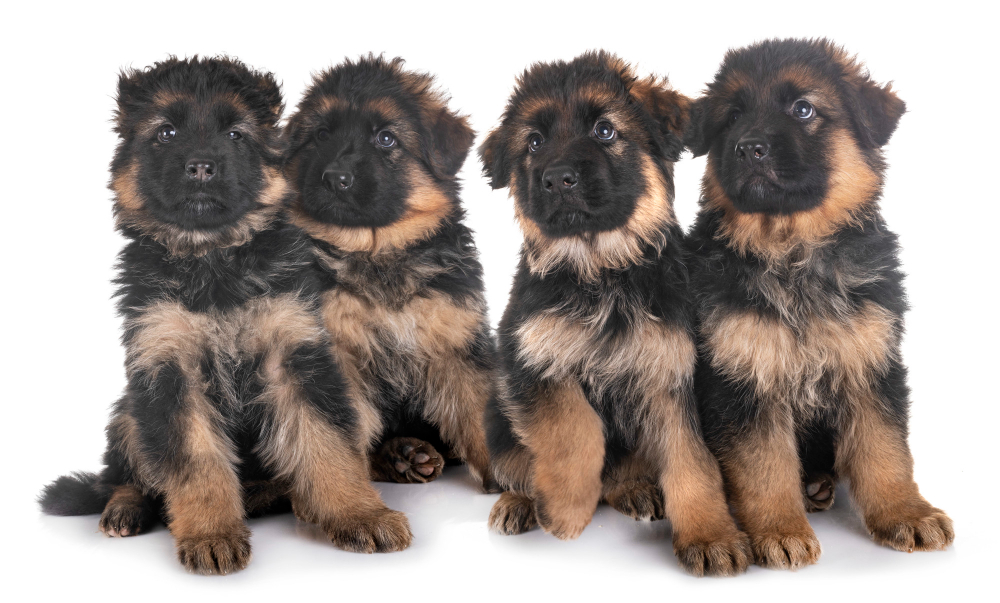
German Shepherds are the second most popular dog in the world because of their extreme intelligence, bravery, loyalty, and striking appearance. First achieving popularity through Hollywood stars like Rin Tin TIn and Strongheart, they have gone on to make the best working and service dogs around the world. Their calm temperament also makes them the perfect family pet, not to mention their iconic looks. Why Are German Shepherds So Popular?
How to use this owner’s manual?
This manual is designed for first-time GSD owners. Our goal is to make your dog ownership a little easier for the benefit and well-being of your new furry friend.
To make it comprehensive yet non-exhaustive, this manual is comprised of 6 parts:
- Part I: Choosing a German Shepherd puppy
- PART II German Shepherd puppy feeding guide
- PART III German Shepherd puppy health and care guide
- PART IV German Shepherd puppy exercise and activity guide
- PART V German Shepherd puppy socialization guide
- Before you start: What to expect from a German Shepherd puppy?
- PART VI German Shepherd training guide
Each part can be consumed as a stand-alone guide of its own. That said, you may jump right into each part of your interest. And in each part, you will find further information to read on if you want to dig deeper into the topic.
What to expect from a German Shepherd puppy?
Your GSD will have a lot of energy, so be prepared to give them plenty of exercises and mental stimulation. They are intelligent. This makes them highly trainable and learn fast.
For the first 6-9 months, it’s perfectly normal for your puppy to chew and nip. But that is why they are referred to as “land-sharks”. Providing appropriate chew toys and redirecting biting behavior to prevent destructive habits.
One thing to keep in mind is that German Shepherds can be protective of their families, so it’s important to socialize them well from a young age. This will help them learn how to interact with other people and animals in a positive way.
They are also known for being vocal, so if you’re sensitive to barking, it might be best to look for a different breed. But with proper training and socialization, a German Shepherd puppy can be a loving and well-behaved member of your family.
German Shepherd puppies’ physical characteristics
- Size and build: German Shepherds Dog are a large breed dog, and their puppies will typically be larger than those of smaller breeds. They are known for their strong and muscular build.
- Coat color: GSD puppies have a thick, double coat that requires regular grooming. The coat color can vary from black and tan, to solid black or white.
- Double coat: At 8 weeks, their coat may be fluffy and soft, but as they reach 12 months of age, it will become denser and coarser, with a dense upper coat and a thick undercoat.
- Floppy ears: Between 8 to 20 weeks, their eyes may stand erect on their own, until they are completely up, flop around, and go up and down.
PART I Choosing a German Shepherd puppy
How much does a German Shepherd puppy cost?
A German Shepherd puppy bought from reputable breeders can cost from $1,800 to $3,000, depending on the age, color, location, and the breeder’s costs on health screening and vaccinations.
Read more:
- How Much Does A Purebred German Shepherd Cost?
- $500 German Shepherd Puppy For Sale: Does it Make Sense?
- How to Find a Free German Shepherd for Adoption?
How to pick the perfect German Shepherd puppy from a litter?
When choosing a German Shepherd puppy from a litter, there are a few things to look for:
- Health: Make sure the puppy is healthy and has been checked by a veterinarian. Look for signs of any health issues such as runny eyes, sneezing, or coughing.
- Temperament: Observe the puppies’ behavior and choose one that is well-adjusted and confident. German Shepherds should be friendly, curious, and eager to please.
- Conformation: Look for a puppy that has good conformation, meaning it has a balanced and symmetrical body structure. This will help ensure the puppy will grow into a well-proportioned adult.
- Parentage: Look at the puppy’s parents, if possible. This can give you an idea of what the puppy will look and act like as an adult.
- Breeder: Try to find a responsible breeder with a good reputation and ask as many questions as possible. A good breeder will be happy to provide information about the puppies and the breeding process.
When is the best time to bring a new German Shepherd puppy home?
The AKC suggests that any time within 8 to 12 weeks of age is probably an appropriate time to release a puppy to a new owner.
The main reason for this is socialization. When a puppy is with its littermates and especially its mother, it learns valuable behaviors.
A reputable breeder will never let a puppy leave before 7 weeks at the minimum.
Further information: The Complete Guide to Finding a Purebred German Shepherd Puppy
In this guide, we will give you all the essential steps to finding reputable breeders for purebred German Shepherd puppies.
The Complete Guide to Finding a Purebred German Shepherd Puppy
We will first start with the pros and cons of owning a purebred dog, then provide you with resources on how to find a good breeder. We will also have a list of questions for you to ask a breeder to make sure you can make an educated decision when bringing home a new puppy.
PART II German Shepherd puppy feeding guide
When first bringing home a German Shepherd puppy, you should follow the guidelines provided by the breeder, or by your veterinarian, when it comes to feeding.
A German Shepherd puppy should consume between 900 calories per 10 pounds of body weight according to the Nutrient Requirements of Cats and Dogs of the National Academy of Science Committee.
This, however, also depends on their overall health conditions and activity level. You may need to feed them more or less to support their optimal growth.
| GSD Age | Number of feedings per day | Average calories per day | Total cups of kibbles per day |
| 0 to 12 weeks | 4 | 1200 – 2400 calories | 1 – 2 cups |
| 3 to 6-months | 3 | 2000 – 2200 calories | 1.5 – 2.5 cups |
| 6 to 12 months | 3 | 2700 – 3900 calories | 2 – 3.5 cups |
| 12 to 18 months | 2 | 3300 – 4250 calories | 3.5 – 4.5 cups |
For example, you could start feeding your 8-week-old puppy 1-2 cups of kibbles 4 times a day. And gradually you can transition to 3.5-4.5 cups for 2 times a day once your pup reached 12 months old.
That said, every dog is different, and you will need to adjust according to your pup’s needs. Other factors such as environmental conditions (temperature and humidity), activity level, health condition, and weight will also affect how much they eat per day.
Here are a few more related posts:
- How Much Does an 8-Week-Old German Shepherd Puppy Eat in a Day? A Feeding Guide
- How Much Does a 3-Month-Old German Shepherd Dog Eat in a Day? A Feeding Guide
- How Much Does a 6-Month-Old German Shepherd Dog Eat in a Day? A Feeding Guide
What is the best food for German Shepherd puppies?
This is the question that you will get a million different answers from a million people. It can be overwhelming to figure out what’s the best dog food in the market. We get that.
However, according to AAFCO, the recommended dog food that facilitates growth in large breed puppies like German Shepherds must contain at least 22.5% protein and 8.5% fat. It should also contain minerals such as calcium and Vitamin A.
The next question you want to ask is: Do German Shepherd Dogs need special food?
The short answer is yes. Your German Shepherd will have different nutritional needs at different points in their lives, which is why you should consider your dog’s age when choosing a large breed dog food.
Large-breed dogs, like German Shepherds are more prone to joint problems. Start feeding your German Shepherd puppy with dog food that includes glucosamine can help support his joints and mobility in the long run.
Read our post on: The Best Food For German Shepherd Puppy: A Beginner’s Guide, if you want to learn more about:
- Is real food good for German Shepherd puppies?
- When to switch to adult dog food?
- Best homemade food for German Shepherd puppies
- Best treats for German Shepherd puppies
Or if you are looking for the best dry dog food for your German Shepherd puppy, here’s your wish list: Best Dry Dog Food for Your German Shepherd Puppies: How to Choose?
Is it ok to give raw meat to my German Shepherd puppy?
You may have come across social media posts from German Shepherds owners saying their dogs are much healthier after switching to a raw food diet. However, you may be wondering if it’s safe to feed your German Shepherd puppy raw meat.
Raw meat is safe for German Shepherd puppies to eat. They have stronger stomach acid than humans, which combats contaminants in raw meat such as E.Coli.
On top of that. a raw food diets consist not only of raw meat but other raw ingredients such as the following:
- Muscle meats
- Organ meats
- Bones
- Raw eggs
- Vegetables
- Fruit
- Dairy
You should not feed your GSD puppy raw food until they reached 12 weeks old. The main reason is that this is the time when they finish teething and their permanent dentition is fully developed.
This can ensure they have teeth strong enough to engage in active chewing of bones as opposed to just gulping it down.
Of course, like everything else in life, raw feeding has its pros and cons.
Pros of raw feeding:
- Opens a variety of food options
- Strengthens Immune System
- Improves skin and coat
- Aids in digestion in GSD puppies
Cons of raw feeding:
- Risk of contamination for the owner
- Raw feeding can be expensive
- Raw feeding is time-consuming
- Feeding a balanced raw diet can be challenging
Related posts:
- Is It Ok to Give Raw Meat to My German Shepherd Puppy?
- The Benefits of Feeding German Shepherds Raw Food – A Beginner’s Guide
PART III German Shepherd puppy health and care guide
How often do German Shepherd puppies normally pee?
A general rule of thumb is that a puppy can hold her bladder for approximately one hour for every month old they are. Most puppies find their way to a new home at 2-3 months old, so they should go for a toilet break every 2-3 hours to start.
How often should my puppy poop a day?
The number of times your dog poops each day should be consistent – whether that’s once or four times per day.
As long as it is the same every day, there’s no need to worry. Typically, most pups will go once or twice a day – although some may go four or more times!
How many hours should a German Shepherd puppy sleep?
On average, a German Shepherd puppy will sleep for 18 hours a day. Some pups sleep longer than others but they usually sleep between 15 and 20 hours in a 24-hour period.
As puppies get older, they sleep less. The average 4-month-old puppy sleeps a little over 11 hours a day.
Should I sleep with my German Shepherd puppy?
You should not sleep with your German Shepherd puppy during the first few months home. Yet you can let your pup sleep beside you in a crate or a dog bed.
Also read: German Shepherd Puppy Sleeping Guide: Everything You Need To Know
When will my German Shepherd puppy’s ears go up?
A German Shepherd’s ears stand up on their own anytime between 8 weeks and 5 months old, or about 20 weeks of age. Until they are completely up, they flop around, go up and down.
You can help your puppy to strengthen her ear muscle by whistling and making funny noises that perk up her ears. Some people suggest adding calcium to your puppy’s diet with yogurt.
Learn more: When Will My German Shepherd Puppy’s Ears Fully Stand Up?
When do German Shepherds start teething?
Starting at 4 months old, German Shepherds will begin to lose their puppy teeth. But some puppies start losing their teeth earlier or later. You may discover a discarded tooth on the floor.
Or you may see a few drops of blood on her chew toy. And it is not uncommon for a puppy to swallow her tooth, which is perfectly normal.
When do German Shepherds get all their adult teeth?
An adult German Shepherd should have 42 adult teeth. The adult teeth don’t all come in at the same time, and they usually come in right under the puppy teeth. The small incisors in front usually come in first, followed by the big canines, the premolars and the molars.
All adult teeth should be in place around 7-8 months old. It’s around this age that your puppy will stop teething or at least start to calm down a little, and by the time they reach one year, they will definitely be out of the teething stage.
When do German Shepherd puppies stop nipping/biting?
Puppies use their mouth to explore their environment, so nipping is very common. This behavior, called teething, can last until the puppy is 6 months old when all her adult teeth have started showing.
Related: How to Stop GSD Puppies From Biting: 7 Owners-Approved Tips That Work
When do German Shepherd puppies calm down?
German Shepherds grew into their full size between 18 months to 2 years old. But they are not considered adult dogs until they reach the age of 3 years old. They’re also likely to calm down and become less energetic when they reach this age.
If your pup is still young, one of the most effective ways to calm her down is to give her regular mental and physical exercise. The rule of thumb is that you should give a puppy 5 minutes of exercise for every month old they are. For example, a 4-month-old puppy would need 20 minutes of exercise.
When do German Shepherds get their full coat?
At about 4 to 6 months of age, they’ll begin to grow in their new adult coat. She will start the coat change on her face first. Then her fluffy puppy coat will be replaced by the smoother adult coat down her back, towards to trail and gradually down her sides.
When do German Shepherds start shedding?
German Shepherds are also known as “German Shedder” because they shed constantly, year-round. While their shedding is especially intense during the spring and fall, they lose their undercoat during the rest of the year.
Related post: How to Deal with German Shepherd Shedding? (Other Than Vacuuming)
When should I bring my puppy for the first vet visit?
You should bring your new puppy to see a veterinarian no later than 2 days after coming home. Some breeders require this within 48 hours as included in their sales contract. It is very important for your vet to examine your puppy to look for signs of disease. If that’s the case, you have the right to return the puppy to the breeder.
When should a German Shepherd puppy get her vaccination?
Your German Shepherd puppy is recommended to get her first vaccination (distemper and parvovirus) between 6-8 weeks of age. Here are the recommended vaccinations from AKC for your reference:
Some dogs do not need every vaccine. Factors such as your location and your dog’s health condition must be considered. You should always discuss it with your vet.
When should my German Shepherd puppy be wormed?
A German Shepherd puppy should be wormed for the first time at 2 weeks of age, then at 4, 6, 8, 10 and 12 weeks old (fortnightly until 12 weeks of age).
After this, they can be wormed monthly until they are 12 months old.
When do female German Shepherds go into the first heat?
Female German Shepherds started their first heat as early as 7 months old, but this may vary from dog to dog. During that time, they may begin mounting other dogs or could become touchy or grumpy. There will be discharge and many owners use feminine pads and a diaper-type arrangement to keep the house clean.
PART IV German Shepherd puppy exercise and activity guide
When can I take my puppy for the first walk?
The American Veterinary Society of Animal Behavior (AVSAB) recommends that pet guardians begin taking puppies on walks and public outings as early as one week after their first round of vaccinations, at about 7 weeks old.
Related resources: German Shepherd Puppy Training Guide for Beginners – PART 3: Leash Training
When can I start running with my German Shepherd?
You are advised totake your German Shepherd for running until they are fully grown at 2-3 years old, depending on your dog’s health condition, diet, location and weather. Instead of going for a marathon for the first time, it is advised to build up the distance with your GSD with time.
Remember dogs cannot sweat like humans to reduce their body temperature. Avoid hot days over 75 degrees Fahrenheit (24°C) to keep them safe from heatstroke.
Related: Can German Shepherds Run a Marathon?
When can I walk my German Shepherd without a leash?
Don’t give your puppy off-leash freedom outside your fenced yard until she is mentally mature enough or well-trained at around 2 to 3 years old. Never let your dog go off-leash where there might be traffic or where he could injure himself.
PART V German Shepherd puppy socialization guide
Socialization helps them learn what to expect from the world around them and gives them the tools they need to navigate it as they get older.
Socialization is the process of introducing a puppy to different people, places, and things while they’re still young. This includes new people, dogs, and animals, learning how to interact with new environments, and being exposed to a wide variety of sounds, smells, and sights.
Socialization is especially important in German Shepherds starting from as early as 8 weeks old. This is because this breed is hard-wired to be protective of their owners as well as their property. Failing to socialize can make the dog become aloof to strangers. Other common signs of unsocialized in dogs include:
- Fearfulness or skittishness around unfamiliar people or animals
- Aggression towards other dogs or people
- Lack of confidence in new or unfamiliar situations
- Difficulty with basic training commands
- Inability to handle being handled or touched
Puppies that are well-socialized are more likely to be healthy, obedient pets that make great additions to any household.
Here’s a more thorough guide you may find useful:
German Shepherd Puppy Socialization: A Beginner’s Guide
PART VI German Shepherd training guide
German Shepherd puppies full of energy and curiosity. They are intelligent dogs that can be challenging to train for first-time owners.
However, with the right mindset, you can train your German Shepherd to become an obedient and well-behaved canine citizen in no time.
- At what age should I begin training my puppy?
- What should I teach my puppy first?
- Is it ok to crate my pup overnight?
- What are the basic commands every puppy must learn?
- How to motivate my puppy?
If you have asked these questions, we’ve got you covered.
You can first glance through our: 10 Best Training Tips for German Shepherd Puppies to get a very basic understanding.
Or if you want to get a different perspective, you can read our post on: Best GSD Training Tips From A Professional Canine Behavior Consultant.
Here, we will set you up for success in training your GSD puppy by answering the most important questions such as:
- Understanding your dog’s L.E.G.S. (Learning, Environment, Genetics, and Self)
- Do GSDs Need Different Training Methods Than Other Dogs?
- What is Most Important When Training A GSD Puppy?
Last but not least, we have compiled an easy-to-follow training guide.
This training guide is our best effort in compiling a collection of training resources for any new GSD owner to kick-start training a new puppy – without wasting your time searching forever online.
Each part is only one page long with at least one video for a demonstration.
Part 1: Crate Training
Part 2: Potty Training
Part 3: Leash Training
Part 4: Seven Common Commands
Part 5: Socialization
Part 6: Stop Biting
Part 7: Stop Jumping
Enroll in puppy training classes or enlist the help of a professional dog trainer; not just for your dog, but for yourself as well. Training assistance will help you grow in experience and build a strong bond between you and your German Shepherd puppy, which is essential.
Wrapping Up: Are you ready for the ultimate adventure?
Bringing home a German Shepherd puppy is a journey that’s filled with love, laughter and endless wagging tails. These majestic dogs are known for their intelligence, loyalty, and protective nature. It’s an experience that will test your patience, time and dedication but it will also be the most rewarding thing you’ll ever do. With the right care and training, you will be able to watch your puppy grow into a happy, healthy and well-adjusted adult dog.
